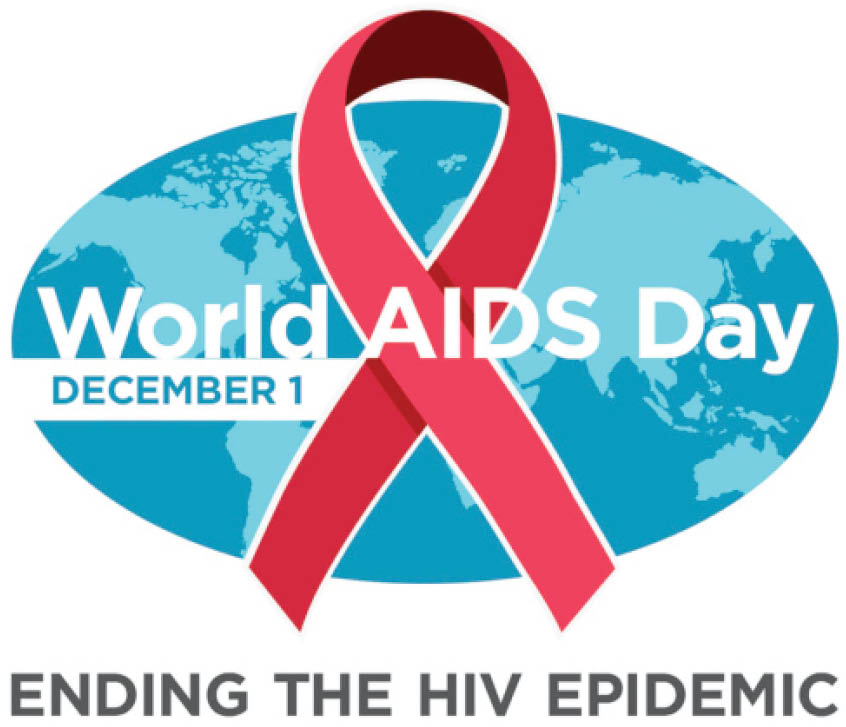Today is World HIV/AIDS Day. Human Immunodeficiency Virus (HIV) and Acquired Immunodeficiency Syndrome (AIDS) is a spectrum of conditions caused by infection of the HIV; a retrovirus. A person may not notice any symptom in the early stage of infection. As the infection progresses, it interferes with the immune system which increases the risk of developing common infections such as tuberculosis. Late symptoms of the infection are referred to as AIDS.
AIDS was first clinically reported on June 5, 1981, with five cases in the United States of America (USA). Five years after its emergence in the USA, the first clinical case in Nigeria was recorded in 1986 in a 13-year-old sexually active girl. In the same year, reports of first cases of maternal HIV transmission and AIDS among commercial sex workers in Lagos and Enugu were reported. There are many risk factors that contribute to the spread of HIV including prostitution, high risk-practices among itinerant workers, high prevalence of sexually-transmitted infections, and irregular blood screening.
Speaking ahead of the 2021 World AIDS Day during a news briefing organised by the National Agency for the Control of AIDS (NACA) in Abuja, the Coordinator, National AIDS, STI and Hepatitis Control Programme (NASCP), Akudo Ikpeazu, said a total of 1, 629, 427 Nigerians living with HIV were on treatment as at June 2021. This is even as the Director General (DG), National Agency for the Control of AIDS (NACA), Gambo Aliyu, said recalibration of the HIV epidemic showed a significant decline in HIV prevalence from 5.8 in 2001 to 1.3 in 2018.
Giving further breakdown of the statistics of HIV carriers already captured under the treatment net, Ikpeazu said while there were 57, 280 children between zero and 14 years on treatment; 551, 106 adult males within the age bracket of 15 years and above were also receiving medication. She also said 1, 021, 041 adult females who are 15 years and above were also on HIV treatment; meaning that women account for the greater percentage of HIV/AIDS positive patients in Nigeria than could be found among men.
In a published interview in March 2021, the DG of NACA, Aliyu, explained that the 1.6 million Nigerians receiving treatment as HIV carriers did not include people who refused to be tested but have HIV; implying that the figures could be higher when the majority of Nigerians present themselves for testing. We, therefore, implore NACA to design a strategic plan of moving into communities to test people. The more people are aware of their HIV status, the higher the chances of controlling the spread of the disease and the better also the chances of reducing its prevalence.
At inception, NACA had an estimated 3.5 million people living with HIV, but the number has today reduced to 1.8 million people living with the disease. In spite of this significant progress, the agency needs to do more to further reduce its pervasiveness by raising public awareness to protect non-carriers of HIV/AIDS against contracting the disease. However, improving access of HIV/AIDS patients to treatment as well as reducing the prevalence of the disease are all tied to the provision of necessary funds. Although Nigeria’s HIV response over the years has been mainly donor-driven, government must show commitment to the fight against HIV/AIDS through adequate budgetary provisions and their prompt release.
A situation, for instance, where funds are not released on time for the purchase of antiretroviral drugs which takes at least six months to arrive after placing an order, is not only counterproductive to the continuous flow of medication required by AIDS patients, but also a hindrance to the fight against the disease; meaning that there are still many HIV-related deaths in Nigeria. Besides government interventions, a trust fund where the private sector and philanthropists are partners could provide wider access for HIV/AIDS patients to treatment.
Although COVID-19 came to interfere with government’s response to HIV/AIDS, it should not be deterred in its fight against the disease. To address stigma and discrimination which have also been on the decline, individuals are encouraged to attach red ribbon to their dresses as a symbol for solidarity with HIV-positive people and those living with AIDS. Daily Trust urges research institutes within and outside Nigeria to diligently continue in their search for a cure for the disease as a permanent solution to the scourge.

 Join Daily Trust WhatsApp Community For Quick Access To News and Happenings Around You.
Join Daily Trust WhatsApp Community For Quick Access To News and Happenings Around You.


